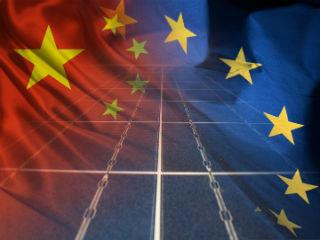By Tamas Matura*
The China-CEEC Summit, held in the city of Dubrovnik in Croatia on 11 April, has introduced a significant development to plans for China’s ‘16+1’ framework: Greece has joined. This means we will have to adapt to its new name: the 17+1.
The situation is somewhat confusing. On the one hand, the joint statement issued after the EU-China summit seemed to set a conciliatory tone, while on the other hand the accession of Italy to the Belt and Road Initiative (BRI) and Greece to the 16+1 seems to prove that Beijing is neglecting EU concerns.
Whatever the strategy of Beijing might be, it is clear that China continues to see opportunities in its cooperation with Central and (South)Eastern Europe. Observers have spent the past eight years debating whether the aims of China in the region are more economic or political by nature. The accession of Greece supports the latter assumption.
It is hard to imagine how Greece might benefit economically from this membership, seeing as China has already been a major economic player and investor for many years. Meanwhile, EU member states in the region have been complaining about the lack of tangible economic results despite the plethora of promises and announcements.
Therefore, if economic potential can explain neither the reasoning behind Beijing’s decision to let Athens become a member of the 16+1, nor Athens’ willingness to join, then political considerations might.
Through its membership, Athens may enhance its negotiating position within the EU, like some CEE countries have tried before. Prime Minister Tsipras can also provide his domestic audience with some spectacular pictures of him shaking hands with the Chinese premier.
The motives of Beijing are less obvious. While the enlargement of the cooperation shows Beijing’s commitment to the initiative and may allow it to persist – despite the growing dissent and disappointment among members – the accession of Greece also raises the stakes in Beijing’s relationship to Brussels , particularly in relation to Germany.
When it comes to economics, the 16+1 is far from being a guaranteed success story. Chinese investment is still minimal in the region, and even the few projects that have actually materialised face serious problems.
Investments in the Czech Republic by the CEFC company have turned into a political and PR disaster for China and the reconstruction of the railway line between Budapest and Belgrade has yet to start, despite long years of negotiations. Romania and Poland have received nothing of the billions of euros of investment promised by Chinese companies.
The Chinese business model has proved to be more viable in the non-EU member states of the Western Balkan. However, the increasing level of indebtedness of these countries to China raises other alarming questions. It is indeed true that trade relations have been expanding between China and the CEEC region, but it is mostly in line with the general increase of EU-China trade of the past decade. Higher numbers can potentially be explained by the very low base and by the role of multinational companies in the region.
Of course, there is a bright side as well, as people-to-people relations, educational exchanges, tourism and institutional cooperation continue to grow significantly thanks to the 16+1 framework. These developments may prove to be the real benefits of the China-CEEC cooperation in the long run. It only takes a glance at the Dubrovnik Guidelines to understand that the main objective and tool of Beijing is to create multitudes of institutional cooperation with its CEEC partners. Besides the dozens of platforms established by the 16+1 throughout the past eight years, the cooperation continues to expand into new field.
According to plans, a China-CEEC Customs Information Centre will be opened in Hungary, along with an ‘Information and Communication Technology Coordination Mechanism’ in Croatia and a ‘Smart City Coordination Center’ in Romania. Beijing has also launched a joint ‘Education Project of Institutions of Higher Education’ and a ‘Youth Development Center’.
The future of the framework will be based on the step-by-step, everyday development of these pragmatic cooperation platforms. Beijing can reach all levels and spheres of society, from students to elderly dancers and from businessmen to young political leaders. Maybe we should focus less on the short-term economic results and pay more attention to the long-term impact of the sophisticated network of institutions created by the 16+1 cooperation.
*A faculty member of the Corvinus University of Budapest and a founder of the Central and Eastern European Center for Asian Studies
** First published in friendsofeurope.org




 By: N. Peter Kramer
By: N. Peter Kramer
